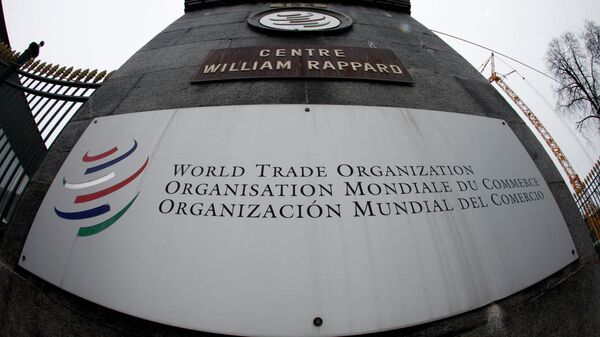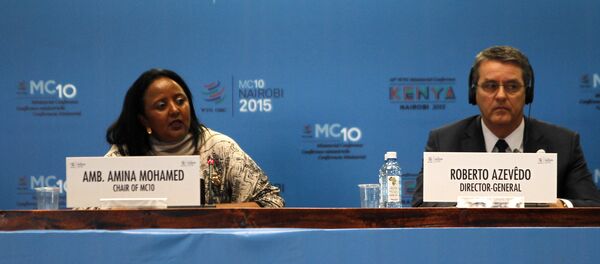"Ever since the United States won its independence, it has been a basic principle of our country that American citizens are subject only to laws and regulations made by the US government — not rulings made by foreign governments or international bodies," the report reads.
"Accordingly, the Trump administration will aggressively defend American sovereignty over matters of trade policy."
Media statements note that this is a dramatic departure from previous US trade policies, including that of former President Barack Obama, who preferred to emphasize international trade rules and the authority of the WTO.
The Trump administration will instead tear up and seek to re-negotiate trade agreements with countries on a case-be-case basis, according to the leaked report. If a country seeks to impose import taxes on US goods, the US will implement Section 301 of its Trade Act of 1974, which allows Washington to impose punitive tariffs in response. This measure has been used only once, against Japan in 1980, and was abandoned following the 1995 creation of the WTO.
"The results of this system have not lived up to expectations," the draft report says. "These figures indicated that while the current global trading system has been great for China, a giant economy that does not act on the basis of market principles, the United States (and many other countries) that practise market-based capitalism have struggled over the last 16 years."
Experts say that if the US stops complying with WTO rules and imposes punitive tariffs, other countries will likely do the same, which will mark the end of the WTO.
"The WTO will lose effectiveness and credibility in trade resolutions if the US decides to walk away," said Eswar Prasad, a senior professor of trade policy at Cornell University.
The report has been sent to the US Congress for review. According to media reports, at least several members of the Congress disagree with Trump's take on trade, with some suggesting that his approach is too harsh.
"It sounds like the Administration is considering a far too drastic response," said Richard Neal, the US Representative for Massachusetts. "We need to fix the problems with the current international trading system, not scrap the system altogether."





